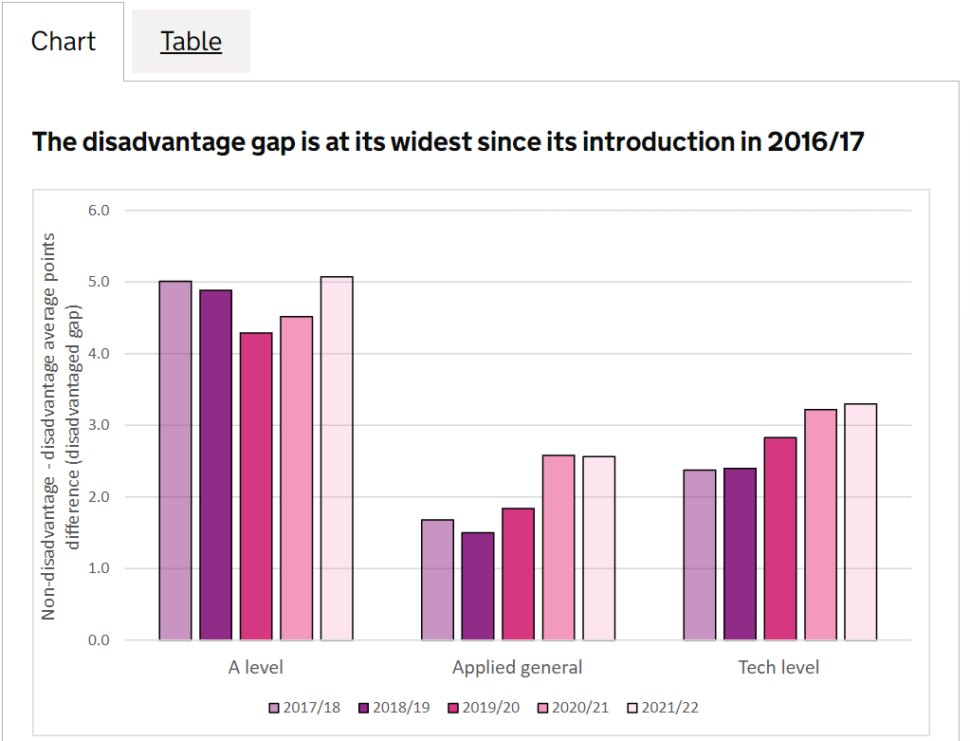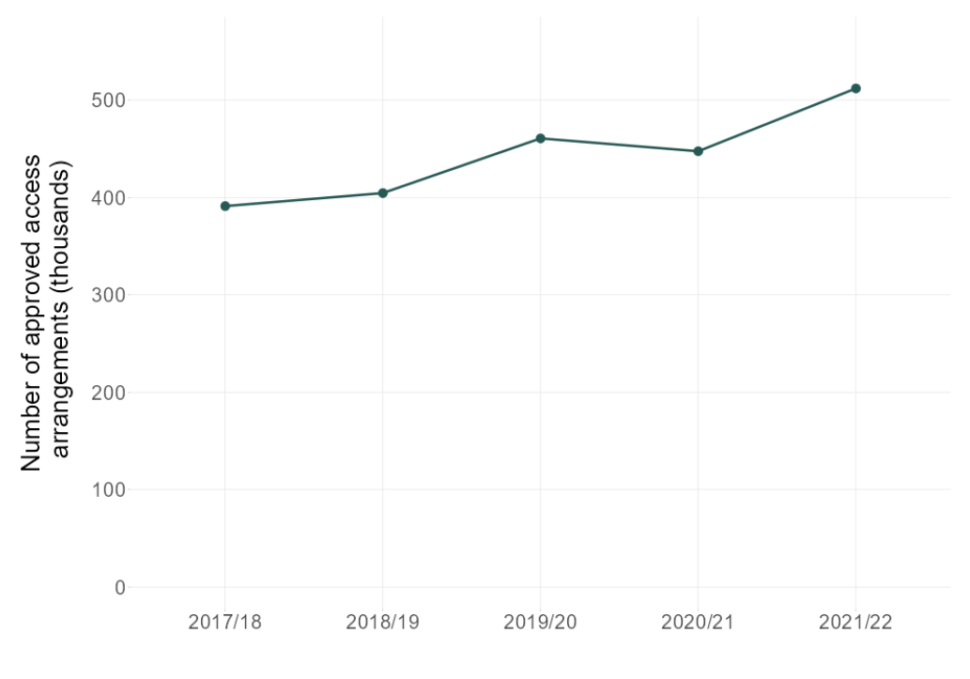The disadvantage gap at A-level is the widest since it was introduced six years ago, new data reveals.
Provisional A-level data published today shows the gap in average point scores between disadvantaged and wealthier pupils sits at 5.08.
This compares to 4.52 when teacher grades were awarded in 2020-21 and 4.88 in 2018-19, when exams were last sat.
New Ofqual data also reveals far more pupils needed access arrangements – additional exam support – this year. The number approved for GCSE and A-level exams rose by 25 per cent since 2018-19, up from 404,600 to 512,085.
This is largely driven by requests for 25 per cent extra time in exams, which rose by 30 per cent in that timeframe.
Another disadvantage gap widens
The A-level disadvantage gap reflects the same trends at secondary and primary – where the gap widened to its largest in 10 years.
The A-level gap was 5.02 in 2017-18, before narrowing slightly during the pandemic and widening again when formal exams were brought back last year.
The Sutton Trust said the gap is largely being driven by poorer pupils with higher prior attainment at GCSE falling behind their classmates.
They said this has “concerning implications for widening access to the most selective universities and driving social mobility”.

The Department for Education said the disadvantage gap has recently narrowed slightly for A* grades, but is still wider than pre-pandemic.
Meanwhile, the proportion of entries awarded A* decreased across nearly all institution types compared to 2020-21 – with private schools observing the largest drop of 11.1 percentage points.
The exception is sixth form colleges, where the proportions of A* grades has remained level with last year.
Meanwhile, the average A-level result for poorer children in 2021-22 was C+ compared to B for non-disadvantaged. In 2018-19, this was C for poorer students against C+ for everyone else.
A DfE spokesperson said they know the pandemic has “particularly affected older pupils’ education which is why it is so important we continue to do all we can to help pupils to catch up”.
The catch up programme sits alongside “targeted investment for areas of the country where outcomes are weakest as we continue work to drive up standards for pupils in every corner of the country”.
Soaring access arrangements
Schools Week reported in May how headteachers were planning to set up separate isolation rooms so pupils with Covid symptoms can take their exams.
A survey by heads’ union ASCL found the majority had received requests for students to take exams in separate rooms, with three in five fearing Covid disruption will escalate.
The Ofqual data shows how the number of centres with approved arrangements is the highest in five years at 5,485 (92.9 per cent) centres compared to 5,420 in 2017-18 (91.3 per cent).

The number of approved requests to give pupils 25 per cent extra time has risen from 256,710 in 2018-19, to 334,375 in 2021-22. This was about 26 per cent of candidates.
Those needing a computer reader or scribe has risen from 136,825 to 160,620 in the same timeframe.
“Other” access arrangements have soared from 1,515 to 4,120 – a 171 per cent rise and the highest in five years. Examples of these are not listed, but schools could choose “other” options before getting approval from the exam body Joint Council for Qualifications.
There has been a 4.9 per cent rise in requests for modified papers in summer 2022 – from 58,245 in 2019 to 61,125.
















Your thoughts